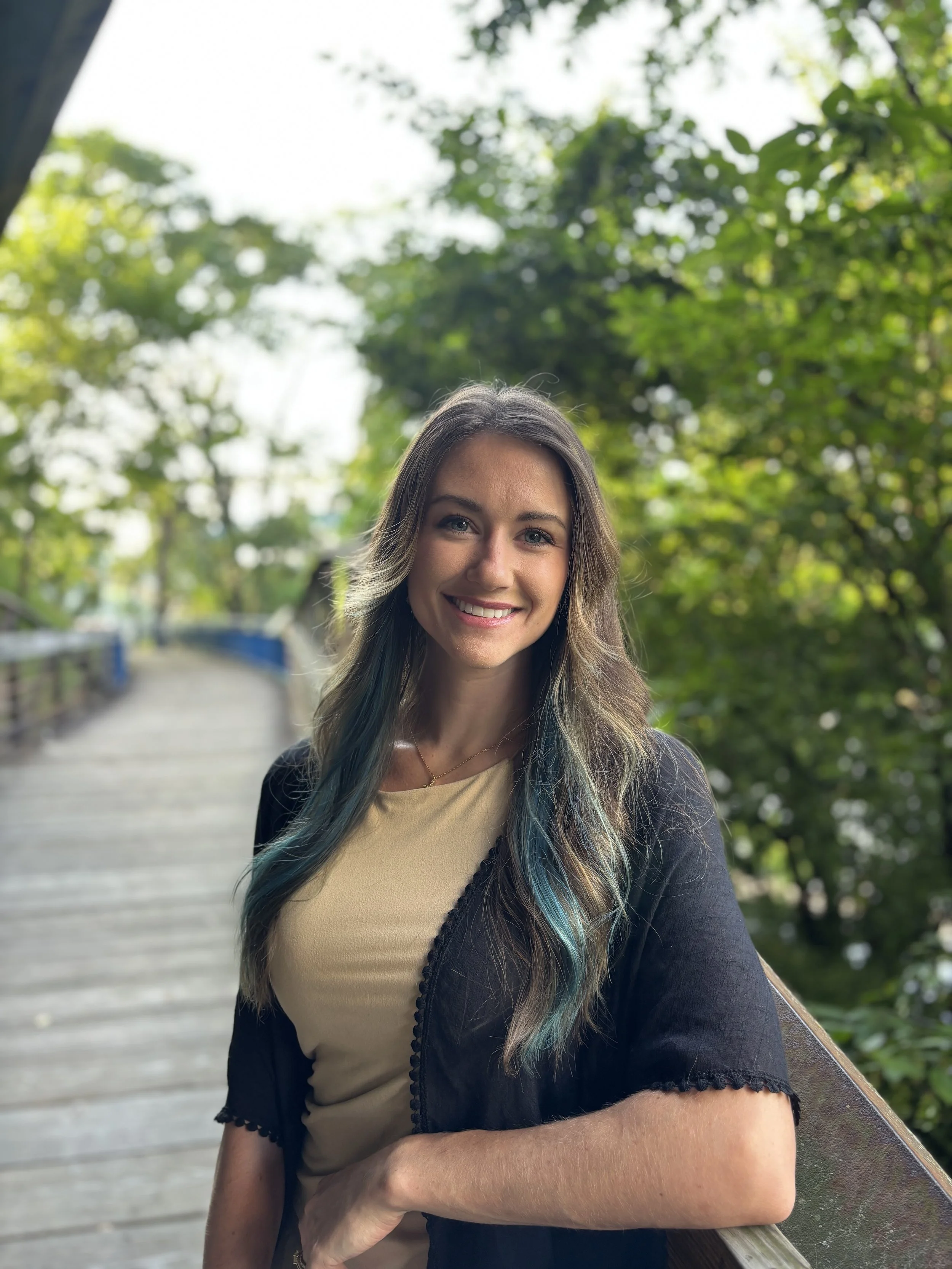Getting to know Anna
Hello there- I am so glad you made it this far and are looking into counseling services. It takes courage to know when to seek help. I came into the field of counseling to understand human behavior- why people do what they do- why people hurt others, why people intentionally hurt themselves and how humans respond to terrible situations and traumas in vastly different ways. Over time, this curiosity has evolved into a commitment to help others navigate their experiences with compassion.
I am a believer in making meaning out of life situations and in understanding behavior is functional in its context. One of my favorite authors, and contributors to the psychology field, Viktor Frankl said it best, "Everything can be taken from a man but one thing: the last of the human freedoms – to choose one's attitude in any given set of circumstances, to choose one's own way."
My passion as a therapist lies in curiosity and in understanding the entire "you" as an intricate, unique, and fully whole being.
In my free time you can find me in nature somewhere, hiking with my husband, paddle boarding, doing yoga, and having cook-offs with my family and friends.
I received my Bachelor’s Degree from The University of Tennessee at Chattanooga, along with my Master’s Degree at Richmont Graduate University in Clinical Mental Health Counseling. I am a Licensed Professional Counselor & Mental Health Service Provider.
I have completed DBT Foundational and Skills Training (Certified 2023), EMDR Basic Training (2025) and Level 1 training in Gottman Method Couples Therapy and use Gottman Method Couples Therapy in my work (2025).
My areas of interest include working with those experiencing anxiety, depression, PTSD, traumas, neurodivergence, dissociative disorders (DR/DP), panic, and mood disorders or personality disorders. I enjoy working with first responders or those in high-intense professions and engaging in communication skills for those on the Autism Spectrum.
I employ an interpersonal approach to therapy and expand on attachment-based theory. I bring in EMDR when needed to reprocess trauma and dig deeper into understanding your full Self.
If at any point, I find that I lack the competence to be of support to clients, I will provide culturally and clinically appropriate referral resources.
Why the Humming Bird?
Resilience
The Hummingbird is the symbol for the counseling practice for several reasons. Humming birds are curious little ones that embody strength, self awareness and confidence. One of the most striking aspects of the hummingbird is its ability to adapt and thrive in the face of adversity. Hummingbirds are known for their remarkable endurance. Despite their small size, they can travel long distances during migration and hover in midair for extended periods, exerting great energy to achieve their goal. This resilience mirrors the challenges we face in our mental health journeys..
In mental health, resilience refers to our ability to recover from stress, trauma, or adversity. It’s not about avoiding difficult emotions or struggles, but rather about learning to navigate them, just as a hummingbird navigates the wind. When faced with moments of doubt, we can look to the hummingbird as a symbol of the inner strength we often underestimate in ourselves.
Joy and Play
Perhaps one of the most symbolic aspects of the hummingbird is its ability to bring lightness into our lives. The hummingbird flits joyfully from flower to flower, seemingly without a care in the world. It reminds us of the importance of joy, playfulness, and the ability to embrace the present moment—qualities that are often lost in the midst of mental health struggles.

